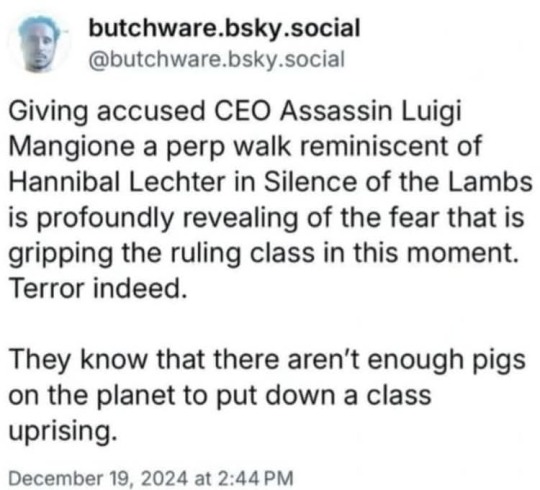#civilings
Explore tagged Tumblr posts
Text
asking people to be mindful of others when sharing a communal space (especially one you cannot just up and leave from) is not selfish or misanthropic. come on now
#like we are human beings who have to coexist. i don’t think it should be so much to ask for some courtesy#but some of you guys act like being asked to be civil to the people around you is like being asked to sever a body part#idk it’s just a respect thing. i’m not being very coherent right now but we have to act like we can share communal spaces!#abandon ethical egoism please 🙏
42K notes
·
View notes
Text
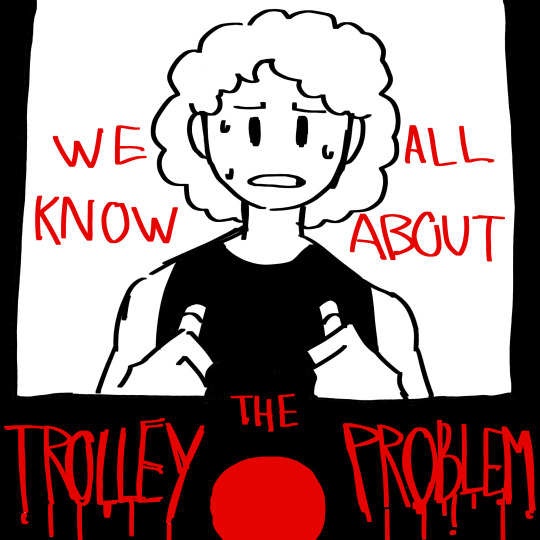
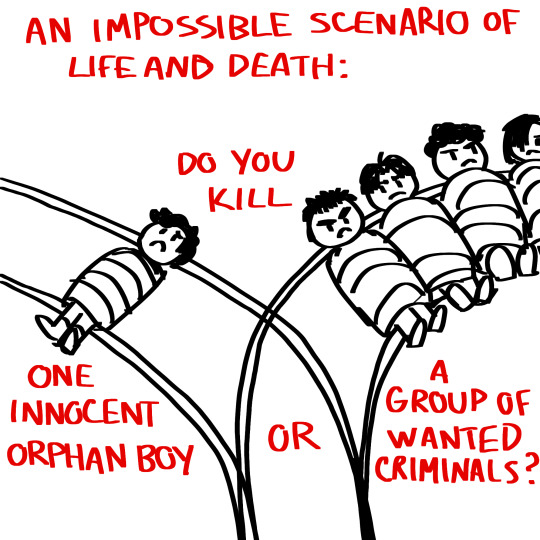




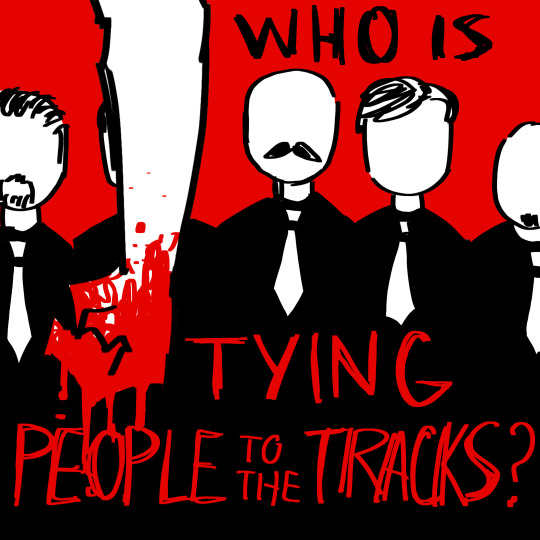
the trolley problem vs. systemic oppression: a comic.
#politics#comics#the trolley problem#philosophy#my art#digital art#alt text#resistance#civil disobedience#capitalism#us politics#us government#american politics#systemic oppression#tw blood#tw implied death#political art
75K notes
·
View notes
Text
A Pragmatic and surprisingly comforting perspective about the Trump 2nd Presidency from the ACLU
***Apologies if this is how you found out the 2024 election results***
Blacked out part is my name.




I’m not going to let this make me give up. It’s disheartening, and today I will wallow, probably tomorrow too
AND
I will continue to do my part in my community to spread the activism and promote change for the world I want to live in. I want to change the world AND help with the dishes.
And I won’t let an orange pit stain be what stops me from trying to be better.
A link to donate to the ACLU if able and inclined. I know I am
#us politics#donald trump#election 2024#aclu#a promise to myself#how is this comforting you May ask#bc we are not fighting alone or uninformed#we have good and strong groups in our corners defending what we believe in#it’s not over yet#we have to try and pushback#added Alt image descriptions since this is leaving containment#happy to see many engaging with this to either donate time or money or both#really warms the cold heart of mine#wow this broke containment#overall it’s been pretty nice seeing people engaging with it ready to roll up their sleeves and get to work#they did the travel ban right at the beginning of the previous presidency too#also every major civil battle in the last century#brown V board of education- the one that desegregated schools#loving V Virginia- legalized interracial marriage#roe V wade- legalized abortion#United States V Nixon- watergate scandal WHICH LIMITED US PRESIDENTAL POWER#Edwards v. Aguillard- helped allow schools to teach evolution#Planned Parenthood v. Casey- another abortion case#ACLU v. NSA- to stop the NSA spying on wikipedia users#Ingersoll v. Arlene's Flowers- fought to stop LGBTQ discrimination from businesses#Obergefell v. Hodges- case that legalized gay marriage#literally WAY MORE GUYS#so don’t fall into dispair! these are literally one of the good ones!
26K notes
·
View notes
Text



#twitter#elden ring#hades#hades 2#terraria#sid meier's civilization#shovel knight#baldurs gate 3#bg3
30K notes
·
View notes
Text
Americans, I know we're going through it, but why do I keep seeing stuff like "I'm sorry world, we'll fix this in 4 years"? But like... what do you mean "4 years"?
We have midterm in 2026, yearly local elections, special elections, primaries, etc.
We have the right (dare I say responsibility) to contact our representatives and the right to organize and protest if/when they don't listen.
We need to find a meaningful way to educate people about propaganda and media literacy. We need to convince people to be willing to educate themselves. The habit of only checking in to politics on presidential election years needs broken.
I understand how defeating today feels, but we, especially those of us who could conceivably make it through these four years unscathed, need to stop this proactive surrender.
13K notes
·
View notes
Text

Peak cinema
12K notes
·
View notes
Text
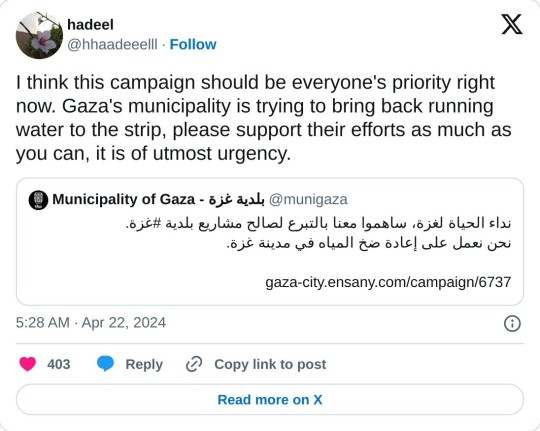
Gaza's municipality is trying to raise money to fix and restore Gaza's water system. Please support them by boosting and/or donating
#yemen#jerusalem#tel aviv#current events#palestine#free palestine#gaza#free gaza#news on gaza#palestine news#news update#war news#war on gaza#support palestine#gaza civil service#Edited
30K notes
·
View notes
Text

Sumerian/Mesopotamian Amulet Seal in the Form of a Bull, c. 3250 BCE.
#history#archaelogy#artifacts#art history#old art#art#statue#ancient history#bronze age#iron age#neolithic#mesopotamia#sumerian#iraqi#historical#cute#ancient civilizations
11K notes
·
View notes
Text

Watched parkour civilization with my brother LOL
There was also this sketch but I didn't like it as much

#art#digital art#i just love ruins tbh#so that temple scene was like ough made in a lab for me#parkour civilization#evbo
12K notes
·
View notes
Text


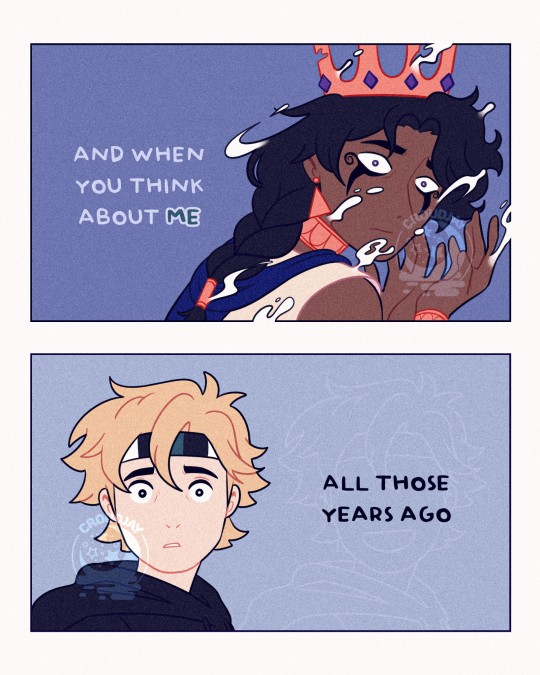




“Good Luck, Babe!”
#parkour civilization#pkciv#evbo#seawatt gaming#clownpierce#seavbo#mcyt#comic#croudjay draws#this comic took years off my life#((i regret coloring this orz))#anyway this comic was inspired by rain paris' cover of good luck babe#why that cover specifically? idk
9K notes
·
View notes
Text
I'm sorry but parkour civilization is just objectively funny. Everything is treated so seriously. There are vine booms every five seconds. Literally every setback the protagonist is hit by is solved by someone appearing and going "here's the exact thing you need," sometimes literally falling out of the sky to do so. There's multiple literal deus ex machinas. The running gag that nobody can do a backwards jump. 10/10 peak comedy
9K notes
·
View notes
Text

In Parkour Civilization No one chooses to jump for the beef
10K notes
·
View notes
Text




parkour civilization is my favorite anime
#mcyt#my art#parkour civilization#evbo#clownpierce#i havent drawn seawatt yet and thts bc i realized hes gona just be my qfoolish but in a different font 🚶♂️
9K notes
·
View notes
Text

In my parkour civilization, people will always have a chance to try again.
10K notes
·
View notes








